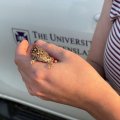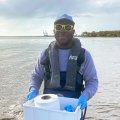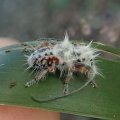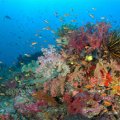A project based at The University of Queensland is helping women who have survived breast cancer to lose weight and live healthier, longer lives.
Living Well after Breast Cancer offers women who have completed their cancer treatment the opportunity to receive ongoing support from dieticians in a personalised program over an 18-month period.
The women on the program – recruited from six Brisbane hospitals – are personally assessed and encouraged via regular phone calls to work towards their own weight loss goals through healthy eating and regular exercise.
Lead researcher Dr Marina Reeves said the project would investigate the range of health benefits that may result from weight management and an active lifestyle after breast cancer treatment.
“Breast cancer survivors who maintain a healthy, active life and make good food choices decrease their risk of other health problems like cardiovascular disease and may help to improve body image and fatigue which are common concerns after treatment,” Dr Reeves said.
“But while we know that weight management is important following treatment, we are still learning about how to best deliver assistance for achieving and maintaining a healthy weight.
“Telephone-based programs offer an exciting opportunity to reach out to women, especially the 30 percent of survivors who live outside of metropolitan areas and may otherwise miss out on support.”
Dr Reeves said the program’s counsellors encourage participants to adopt healthier habits such as walking 30 minutes daily, and decreasing portion sizes, to work towards a healthy weight.
“The focus is really on how little changes can make a big difference, and how we can support these women to make that happen,” Dr Reeves said.
Participant Tania said the program saw her undergo a “complete transformation”.
“Living Well after Breast Cancer helped me stop living in fear and sadness every day and own my own ‘survivorship’,” Tania said.
“Through regular conversations with my counsellor, we started setting personal goals focused on my overall wellbeing.
“Words can never describe how helpful this program has been to help me actually live well after breast cancer.”
Dr Reeves said that results from the study will help improve the way women with breast cancer are supported after their treatment is completed.
Living Well after Breast Cancer is funded by the National Health and Medical Research Council.
Participants will be recruited from the Royal Brisbane and Women’s Hospital, Mater Hospital, Mater Private Hospital, Greenslopes Private Hospital, Redcliffe Hospital and North West Private Hospital.
Women interested in taking part should talk to their breast care nurse or cancer care coordinator.
Media: Vanessa Mannix Coppard (0424 207 771, v.manixcoppard@uq.edu.au) or Dr Marina Reeves (07 3346 4692, 0418 982 201, m.reeves@sph.uq.edu.au)
Dr Reeves and Tania are available for interviews.












